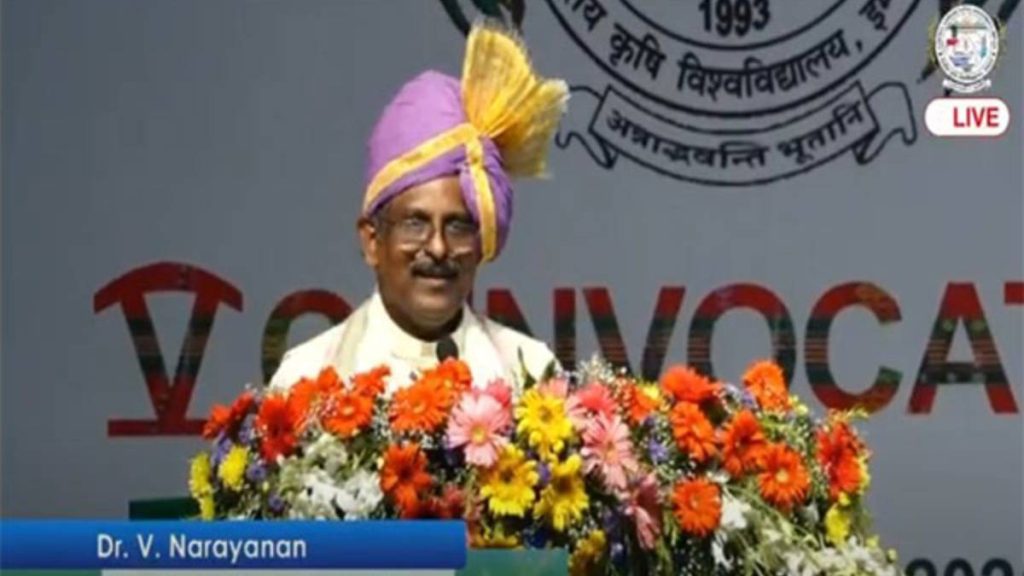Indian Space Research Organisation (ISRO) Chairman V. Narayanan stated that at least 10 satellites are operating continuously to support India’s strategic efforts and ensure the safety and security of its citizens amid escalating tensions with Pakistan.
Speaking at the 5th convocation ceremony of the Central Agricultural University in Imphal, Narayanan emphasized the crucial role of space technology in national defence. “You all know about our neighbours. If we have to ensure the safety of our country, we have to serve through our satellites. We have to monitor our 7,000 km seashore areas. We have to monitor the entire Northern part continuously. Without satellite and drone technology, we can’t achieve that,” he said.
His remarks come in the wake of heightened military tensions following India’s launch of Operation Sindoor — a major cross-border counter-terror strike in retaliation for the April 22 terror attack in Pahalgam. The Indian Armed Forces confirmed the destruction of 11 Pakistani airbases and the neutralisation of multiple terror sites across Pakistan and Pakistan-occupied Kashmir (PoK).
Despite a proposed ceasefire by Pakistan’s Director General of Military Operations (DGMO) on May 10, violations were reported within hours. Indian Army DGMO Lt. Gen. Rajeev Ghai revealed that Pakistan resumed cross-border firing and drone intrusions shortly after the agreement, which India countered with a strong response.
In recent days, border regions in Jammu and Kashmir, Punjab, Rajasthan, and Gujarat witnessed heavy shelling and attempted drone incursions by Pakistan, all of which were largely neutralised by India’s advanced air defence systems. However, the night between May 11 and 12 remained largely peaceful — the first calm night since hostilities escalated.
The role of ISRO’s surveillance network, particularly its constellation of satellites monitoring sensitive regions, has become increasingly vital in ensuring preparedness and strategic advantage during such conflicts.
